Why I Wrote Strongman. Facts Matter. So Does History, a guest post by Kenneth C. Davis
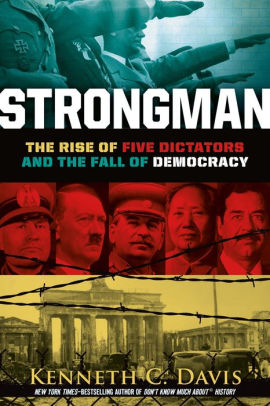
What makes a country fall to a dictator? How does an entire nation follow an authoritarian leader –a Strongman—down a dangerous and deadly path? How does democracy die?
These are difficult questions in ordinary times. But in recent years, as the United States has confronted serious threats to its democratic institutions, these questions have become more pressing. It is no longer an interesting academic exercise to worry about democracy. It is a grave concern that involves the very existence of our most precious rights and freedoms.
Since I was a small boy, I have always loved questions, history, and books. No surprise then that I made a career out of writing books that ask questions about history. In the past, for instance, I asked the question: “How did the men who conceived and fought for the Declaration of Independence go back to lives utterly dependent upon enslaved labor?” That question became the basis for my book In the Shadow of Liberty: The Hidden History of Slavery, Four Presidents, and Five Black Lives (2016).
ADVERTISEMENT
ADVERTISEMENT
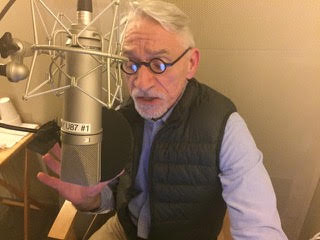
Later I asked: “How did a deadly war early in the twentieth century contribute to the worst pandemic in modern history?” The answer was explored in my book More Deadly Than War: The Hidden History of the Spanish Flu and the First World War (2018).
But raising questions about dictators and the fate of democracy that form the core of my latest work, Strongman, may be the most difficult and important questions I have ever posed.
The book Strongman: The Rise of Five Dictators and the Fall of Democracy profiles Benito Mussolini of Italy, Germany’s Adolf Hitler, Joseph Stalin of the Soviet Union, China’s Chairman Mao Zedong, and Saddam Hussein of Iraq. My intent was to demonstrate exactly how these men were able to seize power. The book lays out the tactics and techniques they used to secure complete control over a nation – with murderous results.
For many people, these are merely names in history books. Certainly, they are notorious names. Yet who these men were and what they did is a vague memory. Today, some people make pilgrimages to the tombs of Mao, Mussolini, and Stalin – misguidedly believing them to be heroic leaders and honoring the memory of despots who caused such misery and death in their own countries and around the world. In writing Strongman, I wanted to raise awareness of what these ruthless men did. And I wanted to explore their lives and times to understand how they were able to bring millions of followers down such destructive paths.
Throughout my career, I have always contended that history is more than dates, battles, and speeches. It is the story of real people doing real things in real places. When we learn history as a human story it becomes less abstract and dry and far more meaningful. Not only does it help us to understand how the past shaped the present. But I also believe that the lessons of the past can guide us to make good choices in our own times.
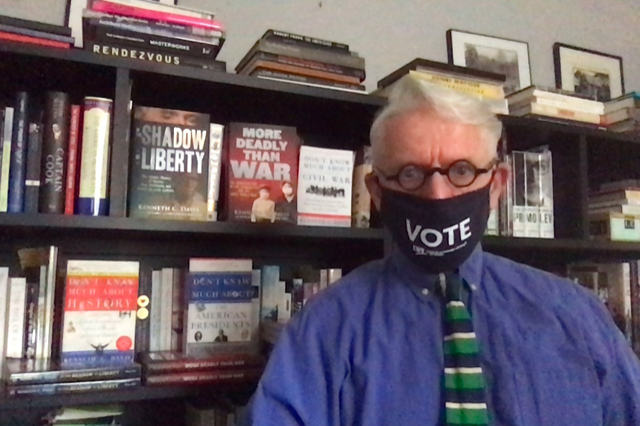
Having written about history for some thirty years, I certainly was aware of the role these Strongmen played in shaping the modern world. But as I began to research their lives, I was surprised by how ordinary they were in many respects as young men. As a boy, Adolf Hitler loved stories of the American West and then dreamed of becoming a painter. Joseph Stalin was in a seminary school and worked for a time keeping weather statistics. Mao Zedong defied his father who had arranged a marriage for him at age fourteen and he later applied for work in a soap factory before becoming a librarian’s assistant. They were in many respects typical, rebellious teenagers who gave no clue of their vicious destinies.
My research took me down many dark roads filled with cruelty, torture, secret police, deliberate starvation, concentrations camps, and mass murder. The degradation and death that each of these men was responsible for became clearer in the horrific toll of destruction they left in their wakes. It is not an easy story to tell. But we cannot look away.
My research also revealed the way these men — and their legions of followers– were able to seize power using a playbook of tactics that many autocrats and tyrants rely on– propaganda, purges of enemies, elimination of the free press and other safeguards to basic rights, and ultimately stamping out dissent. In the process, they destroy any glimmer of hope for democracy.
For much of the thirty years since my book Don’t Know Much About® History was first published in 1990, I remained fairly optimistic about the future of democracy – both in the United States and around the world. At the time the book appeared, the Soviet Union was crumbling, the Berlin Wall was dismantled, and South Africa’s apartheid system would be vanquished. As budding democracies took root around the globe, the world appeared to enter an exciting moment in history. U.S. President George H.W. Bush even pronounced a “New World Order.” Prospects for greater freedom and more human rights seemed brighter as dictatorships fell away, replaced in many nations by “People Power.”
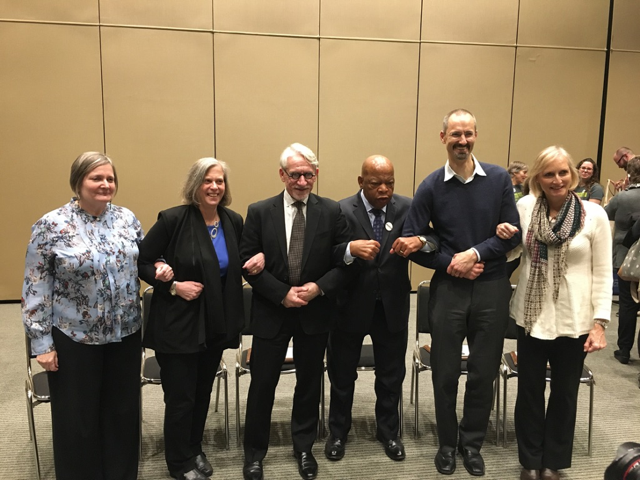
Left to right: Linda Barrett Osborne, the late Karen Blumenthal, Kenneth C. Davis, the late John Lewis, Gareth Hinds, Pamela S. Turner.
(Photo courtesy of Macmillan School and Library Marketing)
Despite the acts of terror and financial crises that followed in the early years of a new century, that optimism appeared secure when Barack Obama was elected president in 2008. Like many Americans, I was surprised and gratified that the United States had made the great leap of choosing a Black man for the nation’s highest office. Whether one agreed with Obama’s political policies or not, many conceded that Barack Obama’s victory seemed to signal a new stage in American democracy.
But something changed. The steady progress toward widening freedom, especially in the former Soviet Union and its Eastern European Communist-bloc, halted somewhat abruptly. The movement towards global democracy slowed and then went into reverse. Authoritarian leaders, such as Russia’s Vladimir Putin, stepped into the breach.
That movement has only accelerated over the past two decades. Populist, nationalist leaders have secured power in several former Communist countries that had emerged as free market democracies and joined the European Union. Authoritarian leaders also took power in nations in Asia and South America.
These growing global threats to human rights, basic freedoms, and democratic principles were the reason I considered it a crucial moment to focus on how an authoritarian dictator –- a Strongman – could take control of a country and quickly dismantle democracy. How does such a leader take power? How do they win millions of willing believers? What are the tactics and techniques they use to destroy the freedoms and rights that come with democracy? And could it happen here?
Meet the author
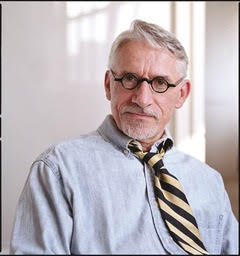
Kenneth C. Davis is the New York Times–bestselling author of Don’t Know Much About® History, which gave rise to the “Don’t Know Much About®” series of books and audios. He is also the author of the critically acclaimed In the Shadow of Liberty: The Hidden History of Slavery, Four President, and Five Black Lives, a Finalist for the YALSA Excellence in Young Adult Nonfiction Award and a Notable Book of the American Library Association in 2017. His book More Deadly Than War: The Hidden History of The Spanish Flu and the First World War wasnamed a Notable Trade Book for Young People by the Children’s Book Council and National Council for the Social Studies.
His latest book, Strongman: The Rise of Five Dictators and the Fall of Democracy, was published on October 6, 2020. It was named a “Best Children’s Book of 2020” by the Washington Post and among the “Best Young Adults Books of 2020” by Kirkus Reviews,
Davis has written for the New York Times, the Washington Post, and Smithsonian magazine, among other publications. A frequent media guest, he has appeared on CBS This Morning, Today, CNN, and NPR. He was recently featured in the CNN documentary “Pandemic: How a Virus Changed the World in 1918.”
Davis enjoys both in-person and virtual visits with readers, teachers, students, librarians, and members of the general public. He lives in New York City.
Twitter: @kennethcdavis
Website: dontknowmuch.com
Davis recommends buying books at Left Bank Books in Belfast, Maine.
© Copyright 2021 Kenneth C. Davis All rights reserved
About Strongman: The Rise of Five Dictators and the Fall of Democracy by Kenneth C. Davis
ADVERTISEMENT
ADVERTISEMENT
From the bestselling author of the Don’t Know Much About® books comes a dramatic account of the origins of democracy, the history of authoritarianism, and the reigns of five of history’s deadliest dictators.
A Washington Post Best Book of the Year!
What makes a country fall to a dictator? How do authoritarian leaders—strongmen—capable of killing millions acquire their power? How are they able to defeat the ideal of democracy? And what can we do to make sure it doesn’t happen again?
By profiling five of the most notoriously ruthless dictators in history—Adolf Hitler, Benito Mussolini, Joseph Stalin, Mao Zedong, and Saddam Hussein—Kenneth C. Davis seeks to answer these questions, examining the forces in these strongmen’s personal lives and historical periods that shaped the leaders they’d become.
Meticulously researched and complete with photographs, Strongman provides insight into the lives of five leaders who callously transformed the world and serves as an invaluable resource in an era when democracy itself seems in peril.
ISBN-13: 9781250205643
Publisher: Henry Holt and Co. (BYR)
Publication date: 10/06/2020
Age Range: 12 – 18 Years
Filed under: Uncategorized
About Amanda MacGregor
Amanda MacGregor works in an elementary library, loves dogs, and can be found on Twitter @CiteSomething.
ADVERTISEMENT
ADVERTISEMENT
SLJ Blog Network
One Star Review, Guess Who? (#202)
This Q&A is Going Exactly As Planned: A Talk with Tao Nyeu About Her Latest Book
More Geronimo Stilton Graphic Novels Coming from Papercutz | News
Parsing Religion in Public Schools
ADVERTISEMENT







